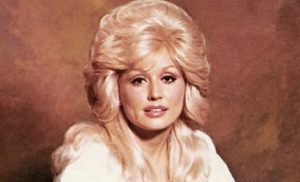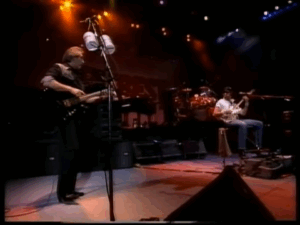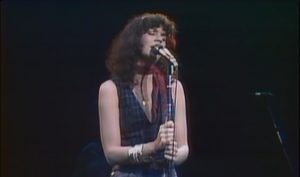Why David Bowie Don’t Listen To Country Music

via David Bowie / YouTube
David Bowie was never one to stay in one place musically. From the spacey melancholy of “Space Oddity” to the experimental textures of the Berlin Trilogy, his catalog reads like an odyssey through modern music. He was a cultural shapeshifter, constantly evolving and never afraid to break new ground.
Born in 1947 in Brixton, London, Bowie’s early career saw its fair share of misfires before he cracked the mainstream with his 1969 hit. What followed was a series of transformations that set the tone for decades of innovation and influence, turning him into one of the most revered icons in music history.
And yet, for all the styles he explored—glam rock, funk, soul, electronic, industrial, even jazz—there was one genre he pointedly steered clear of: country music. Not because he couldn’t, but because he simply wouldn’t.
View this post on Instagram
A Genre-Spanning Legacy
From the outset, Bowie demonstrated a willingness to defy expectations. Albums like The Man Who Sold the World and Hunky Dory marked the beginning of a career built on reinvention. He wove together theater, fashion, and music to build personas like Ziggy Stardust, each phase introducing a new sonic flavor.
In the 1970s, Bowie took glam rock into the stratosphere. By the time he released Aladdin Sane, Diamond Dogs, and the boundary-pushing Berlin Trilogy, he had earned a reputation for his artistic fearlessness. Synths, saxophones, ambient textures—nothing was off limits.
Even the 1980s saw no decline in his appetite for experimentation. With albums like Let’s Dance and Scary Monsters (and Super Creeps), Bowie embraced pop, dance, and avant-garde sounds alike. But as expansive as his musical reach became, there was still a noticeable absence: he never embraced country.
View this post on Instagram
The One Style He Couldn’t Embrace
While Bowie explored nearly every musical avenue imaginable, country music was something he never warmed to. In a candid NPR interview with Terri Gross, he admitted, “I think the only music I didn’t listen to was country and western, and that holds to this day.” It was a rare moment of straightforward disapproval from an artist known for being open-minded.
This aversion wasn’t born out of ignorance—Bowie had an encyclopedic appreciation for music, from jazz and classical to Tibetan horn sounds. His distaste for country music, then, seemed rooted in something more instinctual, perhaps cultural.
Growing up in post-war Britain, Bowie wasn’t exposed to the same Americana that birthed country music. His musical inspirations came from art schools, London clubs, and the avant-garde—not the heartland or honky-tonks. Country simply didn’t resonate with his world or aesthetic.
View this post on Instagram
A Clash of Worlds
Country music, with its deep ties to Southern American culture, often emphasizes tradition, storytelling, and simplicity. Bowie’s work, on the other hand, thrived on surrealism, theatricality, and reinvention. In many ways, the two worlds never had a chance to meet.
That’s not to say Bowie disrespected the genre—he just didn’t feel drawn to it. His music embraced complexity and ambiguity, while country often favors directness and sentimentality. These contrasts made it unlikely that he would ever integrate country into his sonic palette.
Ultimately, Bowie’s lack of connection with country music only underscores how deliberate and curated his artistry was. He didn’t just borrow styles for novelty—he immersed himself in what truly spoke to him. And country, despite its global reach, was never part of that dialogue.
View this post on Instagram











